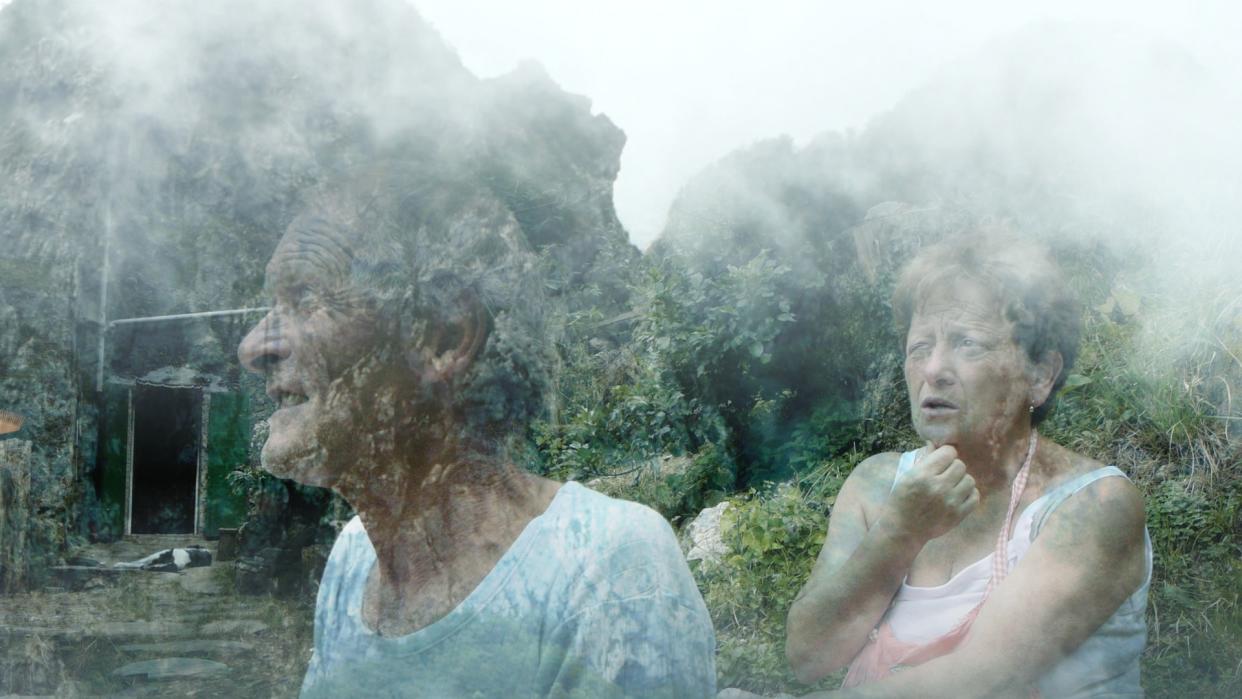Film Review: ‘The Creation of Meaning’

Simone Rapisarda Casanova’s pastoral documentary “The Creation of Meaning” revolves around shepherd Pacifico Pieruccioni, a fit, wiry man in his 60s whose every gesture feels like part of an unchanging rhythm that proclaims him entirely at home in his corner of the Tuscan Alps. But the land does not belong to him and is now up for sale. As he and his donkey, dog, goats and chickens pursue their peaceful routines, visitors drop by to swap stories of Italy’s past and present conflicts. Theatrical play seems a long shot, though this lovely, laidback reverie could flourish in niche venues.
Despite its rather pretentious title and superficial resemblance to Michelangelo Frammartino’s contrived bucolic art piece “Le quattro volte,” makes no attempt to awe viewers into ontological epiphanies. Instead it picks up on what Jorge Luis Borges called “Alephs” — ambivalent confluences of past, present and future, where meaning may lurk.
The filmmaker, who apparently shot, edited, produced and directed solo, sprinkles several such instances throughout the film as the shepherd Pieruccioni interacts with friends, neighbors and passersby. The documentary opens with a slow pan over the countryside as children’s voices are heard telling war stories. This stretch of Italy was the site of German massacres and a hotbed of partisan resistance in the latter days of WWII, and the children, part of an outdoor classroom, often fail to distinguish between past and present tense, confusing what they have been told with what they actually experienced.
A graduate student, doing his dissertation on the fighting, examines and identifies WWII guns and bullets (dug up by Pieruccioni) with surprising enthusiasm and precision. An old woman, buying eggs from the shepherd, recalls her own childhood memories of giving water to a dying German lad after an ambush wiped out his unit, which had come to blow up the valley.
And, in a particularly absurdist confluence, a band of unlikely-looking “partisans” trek past Pieruccioni’s house — the cast of a zero-budget short film by a fledgling director (in no way comparable to the expertise of Risparda Casanova’s one-man show) featuring assorted locals playing machine gun-blasting, grenade-throwing WWII resistance fighters. Rapisarda Casanova not only samples some of the shoot, but even plunks the finished three-minute opus, complete with credits, down in the middle of “Meaning” as a film-within-a-film. Another comic highlight is a long radio rant of a pro-Berlusconi supporter, castigating the “commies” who seek to bring the great man down — a curse-filled tirade that serves as audio accompaniment to Pieruccioni’s breakfast.
The most extended (perhaps even overlong) “aleph” occurs at the film’s close, a conversation between Pieruccioni and the expatriate German who will ultimately buy his land. The shepherd talks of the mutual liking between ordinary German soldiers and Italian residents during the war years. Neither speaker is unaware of the historical irony — the German marveling at the Italians’ tolerance toward his countrymen, as he admits himself baffled over their patience with Berlusconi. But the scene contains its own anarchic principle in the person of the German’s infant son, who babbles, grabs and bats around proffered food and toys.
One long, static shot finds Pieruccioni, friends and neighbors sharing food and wine at a table that stretches well into the distance, their conversation gradually resolving itself into a soaring song that seems as timeless as the mountains themselves. Throughout the film, the beauty of the landscapes and the totally natural insertion of human, animal and insect movement within the frame lend “The Creation of Meaning” a particular grace.
Get more from Variety and Variety411: Follow us on Twitter, Facebook, Newsletter
